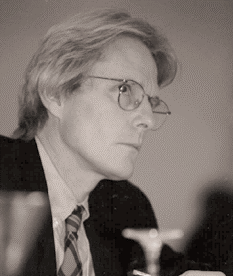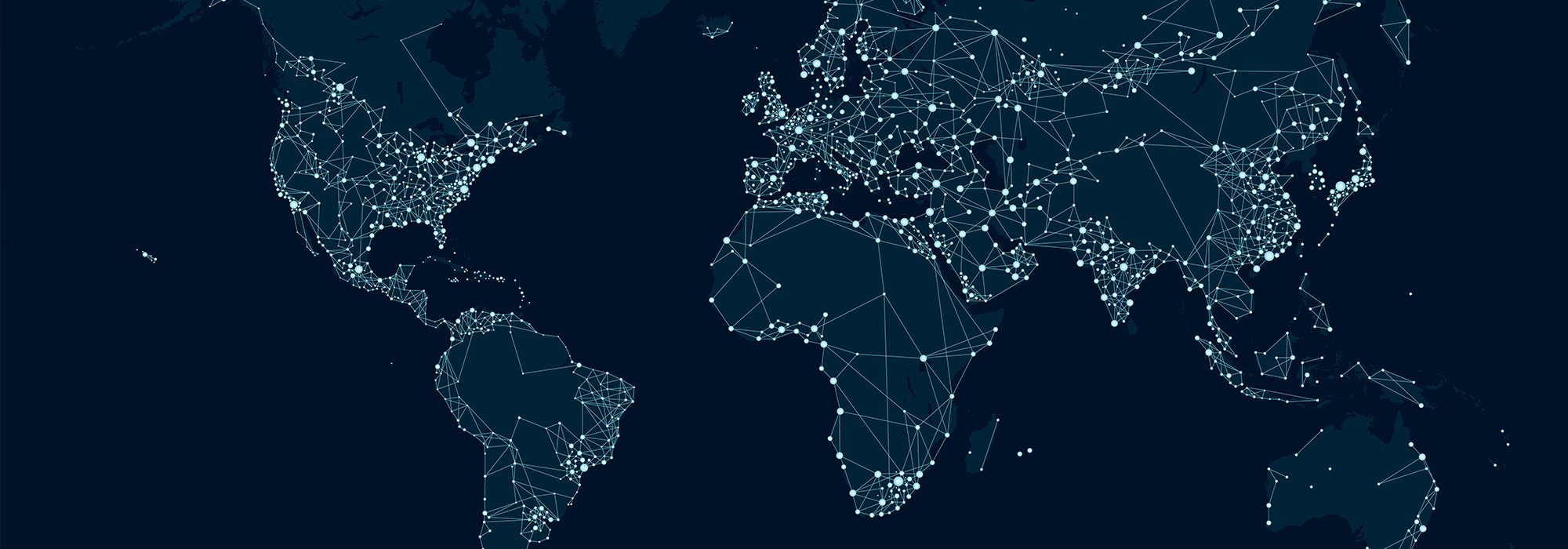
You may conclude by the end of these remarks that I’m a DFAIT mole in this otherwise happy coalition of critics of Canadian foreign policy. Although the Department of Foreign Affairs and International Trade (Canada) kindly contributed to the endowment that pays my salary, I am not acting here as a hired gun, but I hope as a helpful fixer.
We have three in many ways, compelling papers. Two are roughly consistent critical stories about Canadian foreign policy. (I assume subtextually that we’re really talking about Lloyd Axworthy’s foreign policy, although the speakers were too polite to state that directly.) And we have one supporting text which makes an important independent contribution that I’ll get back to at the end of these remarks.
The case for the prosecution here is that the end of the Cold War has diluted Canada’s traditional security concerns. This has produced an increasing disconnect between foreign and defence policy, and has been accompanied both by an increasing number of non-traditional challenges to security planners and policymakers, and by an increasing salience of values in how people—les responsables, anyway—apparently think about foreign policy and security policy. The increasing salience of values is embodied in the much-maligned concept—or nonconcept—known as ”human security,” and is fueled by many of the processes that Morand Fachot was speaking about in his remarks concerning the media and the CNN effect.
All of this has produced a growing rhetorical commitment, so goes this account, to non-traditional, values-based security issues. We have seen an array of environmental, developmental, economic, social and governance issues redefined as security issues. The problem that both speakers then point to is the increasing gap between rhetoric and resources in the pursuit of this rather inchoate agenda, and a growing incoherence between traditional and new security agendas. They also emphasize the gap between universality of aspiration and selectivity of commitment. This might lead one to conclude that security policy is a policy of symbol and not substance, accompanied in recent years by a somewhat unbecoming self-inflation of Canada’s importance globally.
The final point common to the core analyses in this session was what might be called ”the emperor’s new clothes phenomenon,” which is to say that if you do inflate your role and proliferate your rhetorical commitments without actually putting money on the table and people in the field, you ultimately undermine Canada’s credibility.
The speakers have provided me with a solid phalanx to direct my remarks at, and I should say that I agree with much of what has been said this morning. But I remember Louis Delvoie’s citation of Emerson’s remark that supposedly it is little minds that think alike. In order not to be accused of being a little mind, I want to take issue with several elements of this analysis.
First, I think the analysis presumes a settled understanding of security and of interests as distinct from values. This demands a certain unpacking of the concept itself. What is security? Has its meaning fundamentally changed? In a very general sense, the meaning of security is unproblematic and hasn’t changed very much. Security implies some degree of absence of threats to core values entertained by groups of people who are often organized into states. When people ask the next obvious question— ”Well, what do you mean by core values?”—generally the Barry Buzans and company of this world would say, ”Well, we’re really talking about survival and welfare values.” More recently, they would add identity values as fundamental to a state’s conception of itself and consequently to a state’s approach to security. In other words, the values/interests dichotomy that appeared to inform the analyses we have heard is somewhat problematic. It’s therefore not clear how one would dissociate values and interests in Canadian foreign policy—or in any other foreign policy.
So what are the perceived threats to Canadian core values? The case of the Cold War was very clear; we had a rather traditional kind of threat: the Soviet Union and the Warsaw Pact and the potential military challenge they posed to Canada and like-minded states. If one thinks about Canada’s core values and constructing policy around them, we would also have to mention the United States as a potential threat to Canadian identity, even if has not been a threatening power in political terms more recently.
Moreover, there’s nothing in this rather primitive definition of security that I’ve provided that suggests that security policy is ineradicably externally oriented. There is and has been since Confederation an important internal dimension to Canada’s security policy. I have in mind the relationship between unity and identity in Canada. Although this is an internal issue, it has important ramifications for how Canada has conducted itself in the world, a subject I will get back to.
This leads me to a second point related to human security. Oddly, I think I’m going to surprise Louis Delvoie. In fact, I think there’s more to this concept than was suggested in these papers. It may in fact be a moderately coherent conception around which to construct a foreign policy. Louis was right to emphasize the breadth of the agenda and the consequent problem of focus that is inherent in the human security agenda. I would only note that most people—including most people in government—who think about human security are amply aware of the boundaries problem. Where does security start and finish?
But there are ways of addressing the need to establish clear or reasonably clear boundaries around the edges of human security. The Secretariat of the UN is also thinking along these lines, and they are slowly coming to the view that human security, as it has evolved during the 1990s, is in some respects problematic for exactly this reason. In their minds, human security is coming to mean, first of all, the proposition that the individual human being is the key referent for discourse on security. The key factor that differentiates security from non-security questions is the presence or threat of violence directed at human beings, whether individually or in groups.
Seen in these terms, the human security agenda is not so dissociated from the identifiable, perceived core interests of Canada. Firstly, the terrorism, crime, and drugs element of the human security agenda is uncontestably and directly related to Canada’s interests as most of us would define them. Second, the forced migration component of the human security agenda is directly linked to how we define interests in the areas of immigration policy. Third, I think the symbolic quality of Canada’s approach to human security—the rhetoric of values, to put it negatively—so far as it may produce a feel-good sense in the Canadian population, does to some extent legitimize the national government in the continuing discourse about national unity. How effectively it does that is, of course, another question. Finally, the human security agenda adopted by DFAIT does serve the purpose I noted earlier of differentiating Canada from the United States, not only in the principles and policies Canada pursues, but also in the construction of new balancing coalitions, including the human security network.
This brings me to the ”rhetoric versus resources” theme in the papers presented in the last session. If you see the human security agenda, not so much in terms of resolving every crisis that crosses the face of the planet, but in terms of addressing these more or less concrete perceived interests of Canadians and Canadian governments, both domestically and in their relationship with the United States, then the point of human security may not be crisis resolution, but addressing concerns with regard to the United States and creating and sustaining an image of Canada that sells well domestically.
Consequently, what may be seen externally as incoherent—a view eloquently expressed by the panel—may be quite coherent when viewed through a domestic political lens. It serves the concrete needs of politicians. If one views the human security agenda through this optic then neither these internal inconsistencies nor the degree of effectiveness of Canada’s initiatives in crises abroad really matters that much. Public attention is generally superficial and unsustained. The key objective of policy would be, not pursuing the details, but sustaining the image of an active Canada with an identity of its own that was globally present. What I sense is that Canadians are not that interested in the details of these operations. And we can afford this kind of ”security policy” because the threat environment is permissive externally.
My final point concerns the problematic quality of power in international relations. The implicit interpretation of power in the Delvoie and Stairs’ papers was quite traditional in its embrace of the connection between material resources and effectiveness in policy. I have two comments on that.

One is that if you broaden the meaning of security to something beyond forces in the field and embrace wider developmental agendas, then in assessing the degree to which Canada is serious about the human security agenda, you shouldn’t look to traditional measures such as numbers of peacekeepers in the field, which admittedly are in rather impressive decline. (I think, by the way, that if these two papers are distributed internationally, you should black out the data on peacekeeping in the 1990s. Most of us outside the country live quite happily with the fiction that Canada is out there helping to fix everything. We don’t want to be told the truth.)
If one views peacebuilding more broadly, then the number of peacekeepers in the field may be less relevant than other measures of commitment, such as numbers of development workers, humanitarian workers, and NGOs, the contributions of Canada to UN budgets and international financial institution budgets for post-conflict transition and so on. If one does accept the optic of human security as the point of departure, then Canada’s diplomacy around the ICC may be as or even more important in the pursuit of a security policy than is, say, participation in the upcoming peace operation in Eritrea.
A second point I draw from the paper by Morand Fachot. This paper encourages us to think about redefining what we mean by power and what the sources of power are. Power and its measures may be dynamic, not static, and they may be virtual as well as material. Morand notes that information and knowledge are, in his view, major sources of wealth and power. The increasing and changing role of the media and of information technology globally creates new vulnerabilities and challenges for states. But information technology, when used effectively by states, may be an effective and reasonably cheap source of power in its own right.
One thing that hasn’t been mentioned yet today in the context of security policy is the entire debate about soft power. If one is going to make the panelists’ critique of Canada’s role in the world completely effective, one would have to address directly and refute substantially the soft power logic rooted in the power of ideas and persuasion in international relations. If foreign and security policy really is about the propagation of norms and the mobilization of coalitions around them, then it’s not clear what relevance a traditional analysis of the rhetoricresources gap has in assessing the effectiveness of security policy, or for that matter, in assessing Canadian priorities in security policy. I hasten to add, before someone calls the men in white coats, that I’m not fully convinced of this logic. But it does need to be addressed, if only to be rejected.
I agree with the end point of the two analyses I’ve been focusing on, and that is the problem of credibility. At the end of the day, one can only get so far with words if one does not connect them to commitments of human resources and finance. The papers do a good job of pointing to the shortcomings here. The problem of credibility that results from the inflation of Canada’s claims about its significance in the agenda of change in international politics is a problem not only with the international community in general but with like-minded states. I spend a lot of time with the Norwegians, the Swedes and the Dutch, and they are, shall we say, not as convinced of the effectiveness of Canadian foreign policy as we may be.
One element of credibility or cost that was not mentioned has to do with the fact that the ultimate issue in Canadian security is and always will be the United States. Our positive and constructive relationship with the United States is the basis on which all of these other things become possible. It make senses, consequently, to manage that relationship well. On the whole, we do. But an excessively robust pursuit of elements of the human security agenda that directly contradict and greatly aggravate the United States may create knock-on effects in the relationship on the whole, and I think that’s worth thinking about very seriously, particularly with the advent of the Bush administration, Mach II.
On the other hand, even here I think one can say there is substantial scope for Canada to get away with a good deal of independent initiative, and to constructively push the global normative agenda, simply because that is not currently happening to the same extent elsewhere. It may be a key preoccupation in the Pearson Building, but it is not with most of our partners.
My final remark is that if we take the credibility implications of the rhetoric-resources gap seriously, that does not necessarily imply the human security agenda itself is misguided, foolish or excessively inflated. It might instead suggest that we should bring our values and the resources we commit to them closer together.







